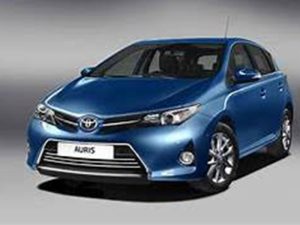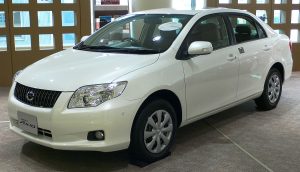The recent gazette notification issued by President Anura Kumara Dissanayake, effective from February 1, 2025, has eased restrictions on vehicle imports and introduced new tax ratios, including for modified vehicles. Many importers are telling their customers as to how long vehicle imports will be allowed is unknown and they should act quick to sees the opportunity.

This decision is expected to have a significant impact on Sri Lanka’s automotive market and its trading partners, particularly Japan and India.
Reactions from Japanese and Indian Markets
Japan has historically been a major supplier of vehicles to Sri Lanka. The lifting of the import ban presents an opportunity for Japanese automakers and exporters to re-enter the Sri Lankan market. However, a critical concern remains the financial mechanisms enabling these imports.
During Sri Lanka’s economic crisis, the government suspended Letters of Credit (LCs), making Japanese banks hesitant to process new LCs. The uncertainty surrounding banking policies could impact how quickly trade can resume. Despite this, the Sri Lankan motor industry remains hopeful that Japanese financial institutions will gradually reopen their trade channels, restoring the previous strong market relationship.
Indian Market Response
India, being geographically close and a significant vehicle exporter to Sri Lanka, stands to benefit from this policy change. Indian automakers are expected to expand their exports, particularly in the budget and compact car segments. However, a major obstacle is the imposition of steep import taxes, ranging from 200% to 300%. These high costs may reduce demand for imported Indian vehicles, making it essential for Indian automakers to assess whether the potential market expansion is worth navigating the high-tax environment.

Rise in Car Import Advertisements With the phased lifting of the import ban, car importers in Sri Lanka have increased their advertisements, promoting a variety of vehicles, from reconditioned to brand-new models. However, the government has issued warnings against misleading promotions.
Minister Nalinda Jayatissa clarified that not all vehicle types are permitted for import, and agencies suggesting otherwise are providing false information. The Vehicle Importers Association of Sri Lanka (VIASL) has been working closely with the government to ensure the public is informed of the exact import policies.
Consumers should be cautious and verify details through official channels before making purchases.
Key Considerations for Importers of Used Cars from JapanTo avoid financial losses, legal issues, or low-quality vehicles, importers must be cautious about several factors:
Regulatory Compliance & Costs Verify- Sri Lanka’s latest vehicle import policies, including model age restrictions.
Understand customs duties and import taxes to assess total costs.
Ensure compliance with emission and safety standards.
Vehicle Condition & AuthenticityObtain and verify auction sheets to check accident history and grading.
Cross-check odometer readings to prevent mileage fraud.
Inspect for hidden damages or mechanical issues.

Ensure radiation clearance for cars from affected regions.
Fraud Prevention & LogisticsDeal with reputable exporters to avoid scams.
Use secure payment methods such as verified bank transfers.
Ensure authenticity of import documents.
Choose reliable shipping companies and secure marine insurance.
Be aware of port fees, customs clearance, and potential storage costs.
Market Demand & Resale ValueImport models that have high demand and spare part availability.
Consider long-term maintenance costs before making a purchase decision.
While the easing of Sri Lanka’s vehicle import restrictions presents new opportunities for both consumers and exporters, high taxes and regulatory challenges remain significant hurdles. Japanese and Indian automakers are expected to assess the market carefully before committing to large-scale exports.
Meanwhile, Sri Lankan importers must exercise due diligence to avoid risks associated with used car imports. By staying informed and verifying details through credible sources, both consumers and businesses can navigate the evolving automotive landscape effectively.







